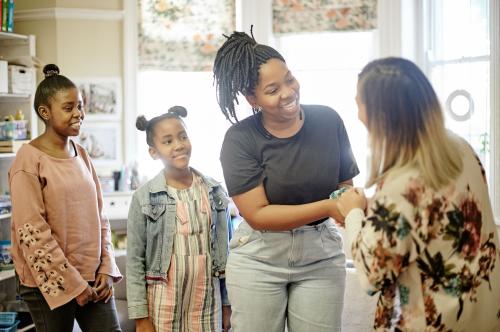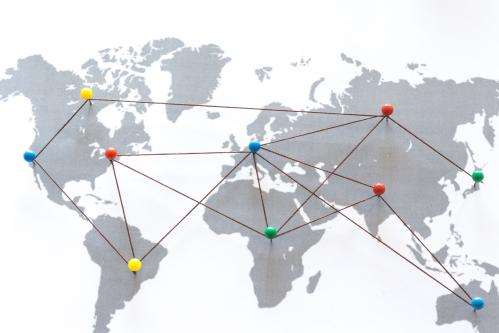
Expanding the research base and dialogue on how to build better FSCE practices, partnerships, and policies.
Building strong family, school, and community partnerships that support student learning and development and thriving schools and communities
Part of the Center for Universal Education in

Explore the initiative:
The Family, School and Community Engagement (FSCE) initiative at the Center for Universal Education is leading a global network of education actors and collaboratively developing tools, research, and strategies that build strong partnerships between families, schools, and communities. Family, school, and community engagement partnerships promote student learning, well-being, and development and support schools to thrive.
Our Global Family Engagement in Education Network consists of over 60 organizations and institutions that work with communities experiencing some of the greatest inequities. Together, we are advancing community-driven and participatory research to ensure that family, student, and community voices are centered in education systems transformation. Using our data, dialogues, and directions approach, we aim to build deeper relational trust between families and schools and to foster inclusive, equitable, and relevant policies, practices, and partnerships.
Our work is concentrated in three areas:

Expanding the research base and dialogue on how to build better FSCE practices, partnerships, and policies.

Developing tools to help educators, families, and decision-makers promote evidence-based and community-driven FSCE practices and partnerships.

Fostering knowledge-sharing, peer learning, and critical dialogues on FSCE with a wide range of actors to catalyze and promote collective action and education system transformation efforts.
We define family, school, and community engagement (FSCE) as the different ways that families, schools, and community leaders or groups work together to promote equitable and inclusive student learning and development and support schools to thrive. Engagement can take different forms depending on the context, but the intention is to support greater collaborations and partnerships to ensure quality teaching and learning and to transform the education system to better serve students, families, and communities.
We use the term “family” to refer to any and all individuals who play a leading role in caregiving of learners, including parents and guardians but also extended family members like grandparents, aunts, uncles, siblings, and beyond. “Family” includes caregivers who do not have biological relationships with learners but are responsible for parenting. We define “community” as the partners and organizations that support schools, students, and families.



